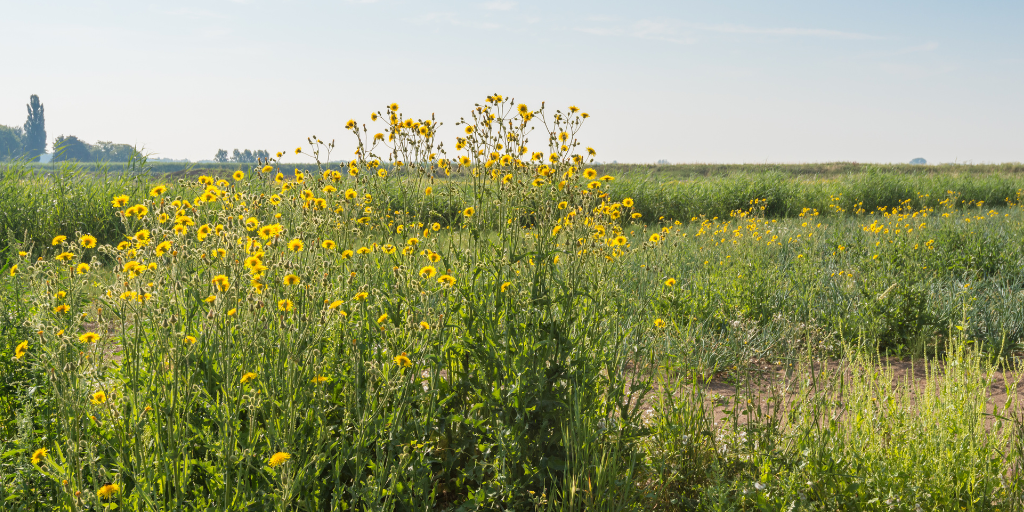In recent years, the agricultural industry has witnessed a significant increase in automation investments. According to the Western Growers Center for Innovation Technology's 2022 Specialty Crop Automation Report, automation-related investments on farms saw a remarkable 25 percent surge in 2022. Approximately 70 percent of participating growers indicated that they had invested in automation in 2022, with an average annual spend of $450,000-$500,000 per grower. The biggest percentage of investment? Weed management: 45 percent of survey respondents reported investing in automated weeding technology.
This investment is a growing trend that is expected to continue over the next 3 - 5 years in a market where labor costs make up such a significant portion of growers' annual expenses. This week we are taking a look at some of the coolest technologies in weed management for 2023.
Weeds: A Growing Challenge
Weeds pose a considerable challenge for growers, as they compete with crops for vital resources such as soil nutrition and water, occupy valuable space in fields, and limit the growth potential of desired crops. An overabundance of weeds leads to reduced yields and compromised crop quality. Moreover, the presence of weeds can make the harvesting process more labor-intensive and time-consuming, further increasing costs for farmers.
The Methods
There are a few main schools of thought in the weed control game; the traditional spray method, various mechanical removal methods, and heat-based methods. Depending on the type of crop, some methods will be more appropriate than others.
Electric Weed Control: The Weed Zapper Annihilator
The Weed Zapper, as the name suggests, uses electricity to kill weeds. Boasting “there is no resistance to 14000 volts” on their website, the Weed Zapper Annihilator model consists of a cart and boom system that attaches to a regular tractor. The Annihilator is used on field crops and is especially popular with growers of soybeans, it works by electrocuting the weeds as it passes over them, causing the water in the plant’s cells to explode and the weed to die.
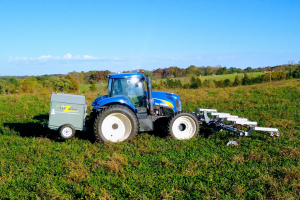
Flame Weed Control: Flamer
Flame weeding has actually been in use since the mid-1800s, but saw a downturn in popularity in the 1960s as chemical weed management took over the industry. Flame weeders vary in size, from handheld models that can be carried by a single worker to large attachments that are towed behind a tractor. By directing a controlled flame onto the weeds, the intense heat destroys their cellular structure, effectively eliminating them.
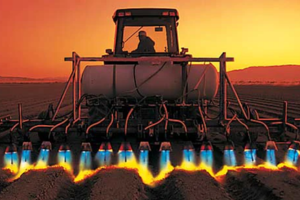
Laser Weed Control: Carbon Robotics LaserWeeder™
The Carbon Robotics LaserWeeder™ is an advanced technology that provides chemical-free and no-till weed control. It utilizes precision computer vision, tracking cameras, and AI algorithms to identify and target weeds accurately. The LaserWeeder™ employs a class 4 laser (which is the most powerful laser classification) for operation. This innovative solution offers efficient and precise weed management that targets weeds and leaves crops intact.

What is an autonomous weeder?
A fully autonomous weeder is self-guiding, uses a self-targeting removal system, and uses computer vision or object detection to identify weeds and crops. Autonomous solutions may be selective, meaning they target specific weeds and take them out, or non-selective, killing anything that comes in their path. A grower’s needs, the time of year, and the condition of the fields decide whether a selective or non-selective solution is more appropriate to use.
Mechanical Weed Control: Naïo Ted & Oz
The Naïo Ted and Naïo Oz are mechanical weed control robots designed for precision weeding in different settings. Ted is designed specifically for vineyards, while the Naïo Oz is suitable for large-scale field applications. Both robots are fully electric and equipped with a variety of attachments for mechanical weeding. Ted and Oz are fully autonomous, using advanced navigation to weed fields independently. These robots offer efficient and precise weed control in a variety of settings.
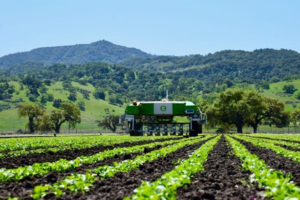
Chemical Weed Control: GUSS
GUSS, also known as the Global Unmanned Spray System, is a cutting-edge technology that offers autonomous weed management through unmanned sprayers. According to their website, a single employee with a laptop can monitor up to 8 GUSS sprayers at a time. This system utilizes precision spraying techniques to target and eliminate weeds while minimizing the use of chemicals. GUSS is equipped with advanced sensors and computer vision technology, allowing it to detect and differentiate between crops and weeds with high accuracy. With its autonomous capabilities, GUSS can navigate fields and apply herbicides precisely, reducing the risk of drift and runoff. The system is integrated with GPS and can be programmed to follow specific routes, ensuring complete coverage of the field.
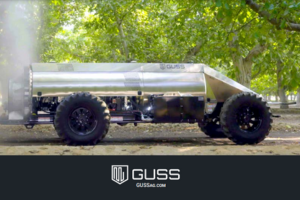
Fully Autonomous Weed Control: Goats
Fully autonomous, self-propelled, organic, and by far the most charismatic weeding solution on the market, goats eat the toughest weeds for breakfast. Goat targeted-grazing has been extremely popular in Canada for a few years, and is even used in a few of our national parks. By rotating the grazing schedule across their fields, growers can leave the weed management to the experts to remove invasive and troublesome weeds, clear excess vegetation, and even clean up last year's leftover crop.

The agricultural industry's increasing investments in automation for weed management highlight the growing importance of addressing this challenge. There is a wide range of innovative weed control options, including electric, flame, laser, mechanical, and chemical. There are even organic options like targeted-grazing with goats, so growers have a diverse set of tools to choose from. These technologies offer a variety of efficient and precise weed management strategies, reducing labor costs and improving crop yields. As automation continues to advance and integrate with cutting-edge technologies, the future of weed management in agriculture appears promising, ensuring growers can effectively combat weeds and optimize their crop production.
Croptracker develops agtech solutions for industry leaders. Located in Eastern Ontario, Canada, our mission is to make crop production safer, more efficient, and more profitable. Designed in partnership with fresh market producers and distributors, every tool we create is based on direct industry feedback.
Interested in learning more about Croptracker? Learn more about our Farm Management Software, or book a demonstration to schedule a meeting with our product experts.
